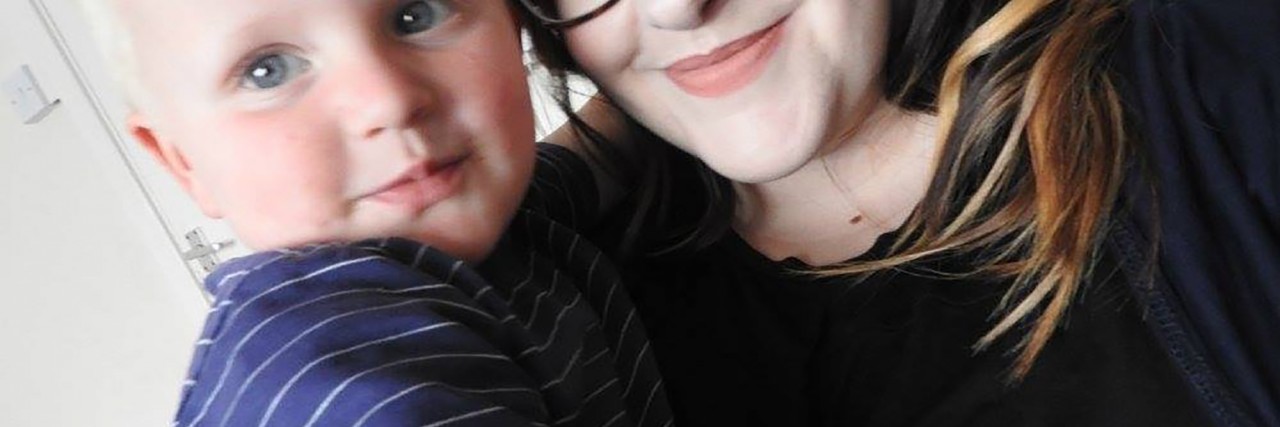What Laughing With My Nephew Taught Me About Disability and Acceptance
I spent last weekend with my 3-year-old nephew, Kaine, and it got me thinking about how he sees me. I’m his Auntie Sarah; I use crutches and an electric wheelchair, I wear splints and take tablets, but most of all, I make a huge fuss over him. I buy him toys when he’s already got too many, and tickle him until he can’t giggle any more. I know he loves me as much as I love him, and I’m grateful for all he brings to my life.
KP (my nickname for my little dude) is too young to know anything about my disability, and he certainly doesn’t notice the challenges I face. His naivety is refreshing, and his lack of understanding makes me forget that I’m “different.” He’s very happy sitting on my knee when we go out in my power chair, cranking up the speed and beeping at people as we whizz by. The silliness of it unleashes my inner-child (granted, it doesn’t take much) but laughing with him means I’m just his super-cool aunt who gets around on wheels. He’s also completely amazed at the “robot” in the boot of my car; my wheelchair hoist is an absolute lifesaver, but my nephew thinks it’s one of the most spectacular things he’s ever seen. He always helps with getting my chair in and out of the car, and the most mundane task becomes fun as his little blue eyes light up once it’s in action.
I’m glad my nephew is being brought up around disabled people, though he doesn’t know it yet. There won’t be any awkwardness or uneasiness when he grows up; a wheelchair, any mobility aid or disability shouldn’t phase him as he’s grown up with me and his great-uncle, who had his leg amputated earlier this year. Children are innocent and they adapt quickly. Unlike adults who may feel uncomfortable around disabled people, kids have no preconceptions. They don’t see a disability, or a missing limb, a hearing aid, or a cane; they see a person, and they ask questions.
I find that kids are so blunt, and I appreciate it. “Why are you in a wheelchair?” “Where’s your leg gone?” “Can you walk?” They learn by asking questions and when it’s something unfamiliar, they want to know about it. I often get quizzical looks from young children and I will happily answer any questions they have, but when their parents are embarrassed, apologetic, and pulling them away, that’s where the difficulty lies. There’s no shame in asking; children are curious, so feed their minds and let them be as frank as possible. They learn from the people they’re surrounded by, so if they’re being told “not to stare” by an adult who doesn’t know how to address a disabled person, they’ll grow up with a similar attitude. It’s vital to educate them when they’re young.
I can only speak for myself, but I would gladly talk to anyone about my condition, adult or child. The more openness and awareness, the better. Disability shouldn’t be something that is hidden from children. They’re much more willing to accept it than most adults, and while they’re young, it’s important that they learn as much as they can and have many different experiences. Don’t think you’re protecting them by shying away from topics that you, as an adult, find uncomfortable. Let’s make the next generation as accepting as we can.
Follow this journey on Sarah in Wonderland.
The Mighty is asking the following: How would you describe your disability, disease or mental illness to a child? If you’ve done this before, tell us about that moment and the child’s reaction. Check out our Submit a Story page for more about our submission guidelines.

